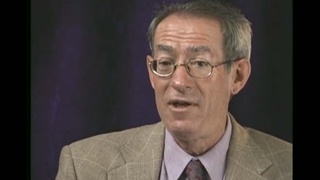Interviews
Wanting to take a stand
I felt very strongly about the unfairness of the whole thing for one thing. I thought it was very unfair that the government would uh put you in this position and then expect you to be drafted on the same basis as the free people on the outside. That was totally unacceptable. And uh, some of us, lot of us felt the same way so uh, that’s why we were able to take this step. Well, after awhile several meetings we said, some of us thought that we better go a step further. Instead of just being informational, take, take a stand.
Well we had a pretty serious uh steering committee meeting before that ‘cause some of the, there was one or two guys that uh didn’t want to go that strong. They said you know we might get in trouble. And one of them who was a college graduate at that time, was the one that said well you know, Paul Wakanate, he was a good speaker, a very good speaker. But he said well you shouldn’t go that strong and uh I guess I must have argued with him pretty badly because uh one of the fellas said hey Frank, talk to me like that I’d either haul off and hit him or start running like hell. So anyway, we took a vote and those of us that wanted to take a stronger stand on it came out ahead and we actually came out and said that we will refuse to go until our rights are restored.
Date: May 9, 2006
Location: California, US
Interviewer: Lisa Itagaki
Contributed by: Watase Media Arts Center, Japanese American National Museum








